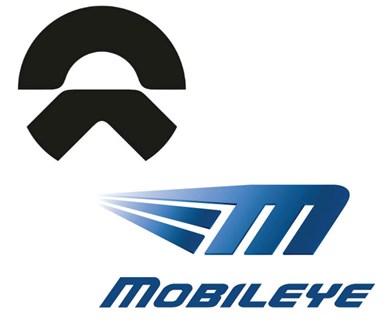Nio, Mobileye Ally on Self-Driving Cars in China
Chinese electric-car startup Nio Inc. and Intel Corp.’s Mobileye unit will partner to develop autonomous vehicles for China’s consumer market.
Chinese electric-car startup Nio Inc. and Intel Corp.’s Mobileye unit will partner to develop autonomous vehicles for China’s consumer market.

The partners say Nio will mass-produce a Mobileye-designed Level 4 self-driving system and install it in Nio EVs for sale to consumers and use by ride-hailing services. Mobileye will market a variant of the latter application to other markets.
Mobileye tells Reuters that the two companies intend to debut a first-generation system in China in 2022.
Under the partnership, Nio will equip future EVs with Mobileye’s automated vehicle technologies. The package consists of Mobileye’s EyeQ system-on-a-chip, sensors (cameras, lidar and radar) and other hardware, driving algorithms, safety software and mapping technology.
Mobileye technologies already are used by nearly 30 carmakers in various advanced driver assistance systems, such as lane departure and blind spot warning features. So-called ADAS features are elements of robotic-driving platforms.
In 2017 Intel acquired a majority stake in Mobileye for $15.3 billion.
RELATED CONTENT
-
on lots of electric trucks. . .Grand Highlander. . .atomically analyzing additive. . .geometric designs. . .Dodge Hornet. . .
EVs slowdown. . .Ram’s latest in electricity. . .the Grand Highlander is. . .additive at the atomic level. . .advanced—and retro—designs. . .the Dodge Hornet. . .Rimac in reverse. . .
-
Things to Know About Cam Grinding
By James Gaffney, Product Engineer, Precision Grinding and Patrick D. Redington, Manager, Precision Grinding Business Unit, Norton Company (Worcester, MA)
-
Multiple Choices for Light, High-Performance Chassis
How carbon fiber is utilized is as different as the vehicles on which it is used. From full carbon tubs to partial panels to welded steel tube sandwich structures, the only limitation is imagination.








